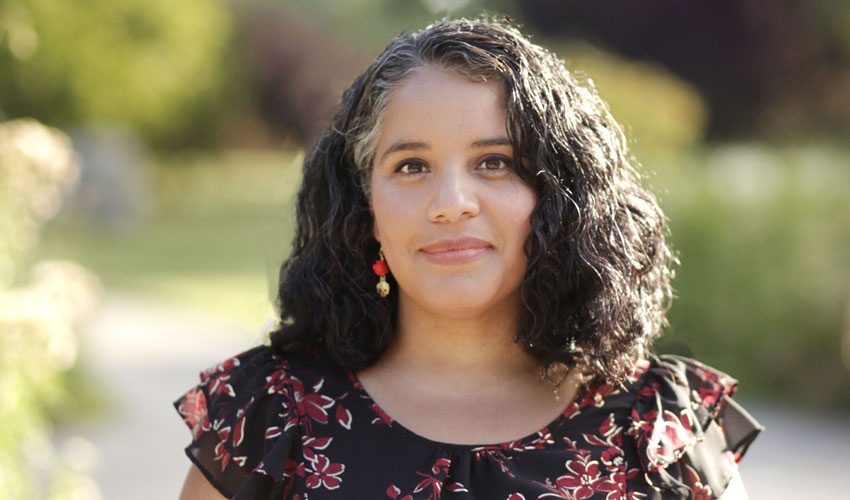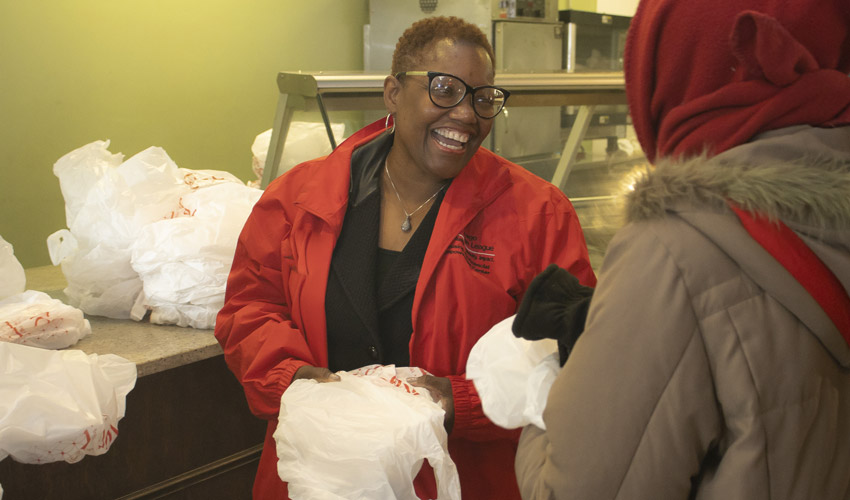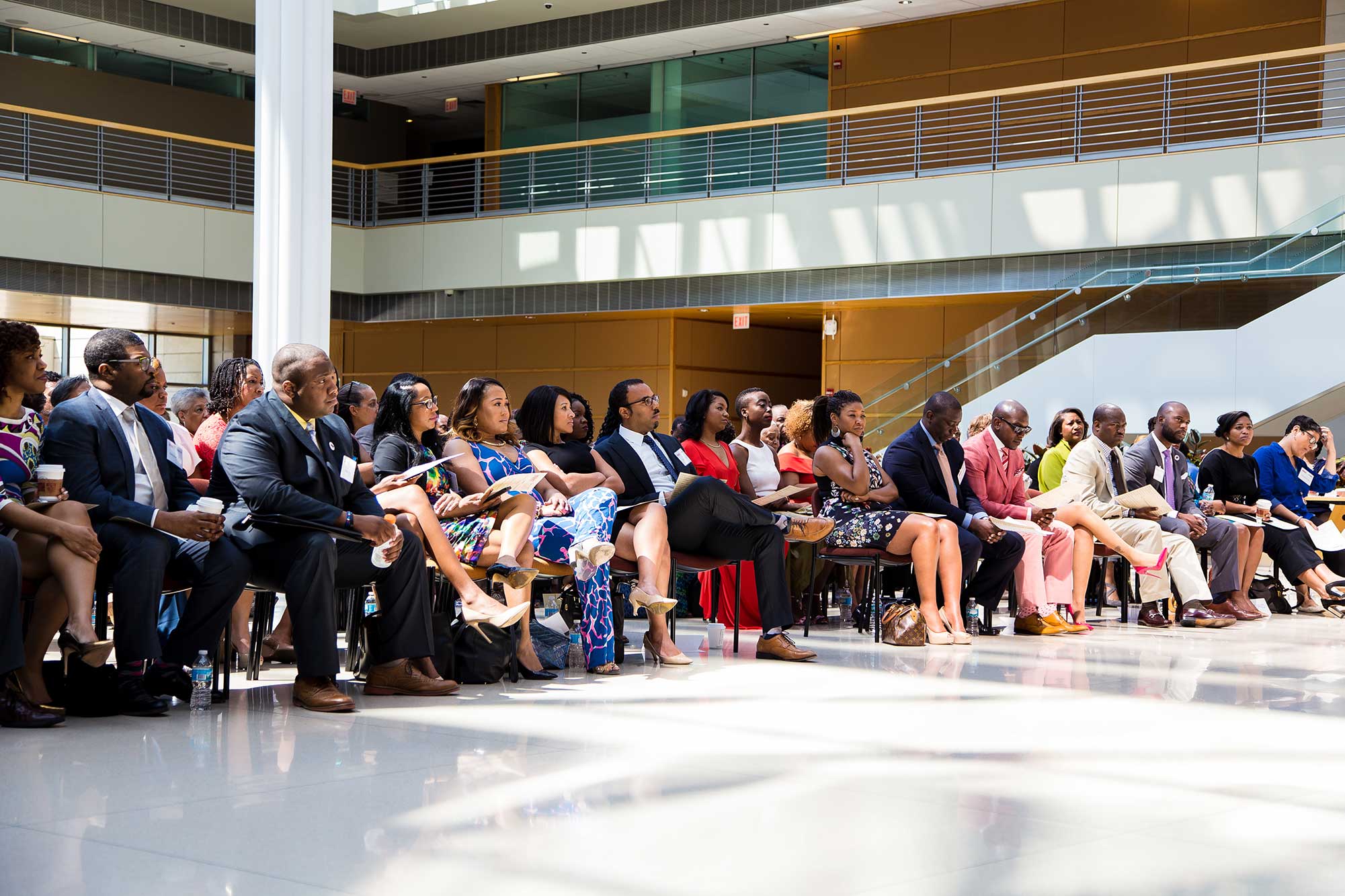Crossroads Fund, Chicago Urban League, and Chicago United for Equity are working to advance women of color in leadership, through mentorship, coaching, and grantmaking.
As a young immigrants’ rights organizer in Chicago, Alhelí Irizarry usually found herself working in community organizations led by white men. A teenage activist who came to the U.S. from Mexico at age nine, she often felt dismissed and invalidated as a leader.
“As benevolent as men at these organizations were, when it’s an issue that’s not affecting them, there’s still a blind spot,” she said. Her experiences left her feeling “jaded, burned out, and disconnected.”
Women of color such as Irizarry are significantly under-represented as leaders of nonprofits, foundations, companies, and other institutions—a deficiency that leaves a wealth of civic innovation and visionary leadership untapped.
It is especially glaring in community development and organizing, where the communities most affected are—as many describe it—held together by women of color.
Three Chicago organizations are changing that dynamic. Crossroads Fund, Chicago Urban League, and Chicago United for Equity are led by women of color and support women of color through fellowships, coaching, training, grantmaking, and more.
Preparing Women of Color Leaders
From her first time attending the Crossroad Fund’s one-year program, Cultivate: Women of Color in Leadership, Irizarry recalled “a shower of validation and understanding” that included coaching and becoming part of an intergenerational pipeline of women of color leaders.
“As soon as someone spoke,” Irizarry said, "there was immediate connection, understanding, and recognition.”

Photo by Silvia Ines Gonzalez
Alhelí Irizarry, manager of Cultivate, struggled early in her community organizing efforts.
Cultivate provided a “safe and brave space to decompress and deconstruct” women’s experiences, which helped them unlock their potential, Irizarry said. One important step was “throwing away the impossible measuring stick” of comparing their backgrounds, perspectives, and leadership approaches to those of a white patriarchal society, she added.
Today Irizarry manages Cultivate. She supports other women of color to develop leadership skills by helping them reconnect with their innate leadership abilities.
Crossroads Fund Executive Director Jane Kimondo noted that, historically, leadership roles in nonprofit and philanthropic institutions were not created for women of color. Crossroads is changing that scenario, in part, by helping institutions realize that the experiences women of color have are assets, not liabilities.
“Maybe you are the first in your family to go to college, or you are a mom, or you are interpreting for your whole community,” Kimondo said. “You’re a leader in all these spaces.”
Candor from a Trusted Person
As a young prosecutor, then a judge in Northwest Indiana, Karen Freeman-Wilson often experienced the same setbacks and perceptions that Irizarry had.
Then a mentor convinced Freeman-Wilson to dream bigger. She entered politics and became Indiana Attorney General, head of the Indiana Civil Rights Commission, and finally, Mayor of Gary, where she led city revitalization efforts.

Chicago Urban League President and CEO Karen Freeman-Wilson distributes meals at Operation Hope in 2019.
Since early in 2020, Freeman-Wilson has been president and CEO of the Chicago Urban League. Its IMPACT Leadership Development Program cultivates African American leadership—including Black women—in corporate, nonprofit, and other sectors, through training and intensive mentorship.
“The candor that only a mentor you trust can give” has been crucial to her success, Freeman-Wilson said. Women mentors helped her balance family commitments and career, including when she was commuting from the state capitol in Indianapolis to Northwest Indiana to care for her ailing mother.
Mavis Laing, Vice President and Executive Director of IMPACT, noted that her own experience of receiving mentorship when she worked in the corporate world was crucial to her advancement.
Laing also noted that Chicago fares better than many cities in the number of prominent women who are leaders of color, including Mayor Lori Lightfoot, Cook County Board President Toni Preckwinkle, State’s Attorney Kim Foxx, and Lieutenant Governor Juliana Stratton.
In addition, more than 20 women of color lead foundations in Chicago.
Women of Color, Leaders of Movements
“Civic love” is at the heart of Chicago United for Equity’s (CUE) work.
But it “is not a sentimental and soft thing,” said co-founder Niketa Brar, a Cultivate alumna. “It’s about accountability. It’s building a city that’s accountable to communities of color, which has not been our history.”
More leaders of color enhance that accountability and create “the city we deserve,” said Brar, who established CUE with Elisabeth Greer in 2016.
CUE brings together cohorts of individuals to “propel their leadership as racial justice advocates in policy, research, storytelling, and community organizing.” And it guides communities in civic planning, including budget exercises where residents decide how funds should be spent in their communities.
Budgeting is a natural skill for women of color, Brar noted, adding that they long have figured out how to stretch their household dollars to care for children, elders, and others.
That theme is reflected in Ms. Foundation for Women’s 2020 report, “Pocket Change: How Women and Girls of Color Do More with Less,” which notes that grants to women and girls of color totaled about $356 million in 2017, or about one half of one percent of the nearly $67 billion given by foundations, according to Giving USA.
The $356 million amounts to less than $5.50 per year for each woman or girl of color.
The report also points out women of color have led many historic movements for change, including suffrage, civil rights, and justice reform, by responding to crises with creative and innovative solutions.
“People who have experienced systems of oppression first-hand just bring an insight that’s very difficult to replicate,” Brar said. “It’s the empathy-based kind of leadership that’s inherent in women of color. It’s actually one of the greatest assets we have. It’s a critique grounded in love.”
MacArthur provided $2,526,120 in support to Chicago Urban League between 1980 and 2019; $1,293,000 to Crossroads Fund between 1992 and 2020; and $75,000 to Chicago United for Equity in 2019.




